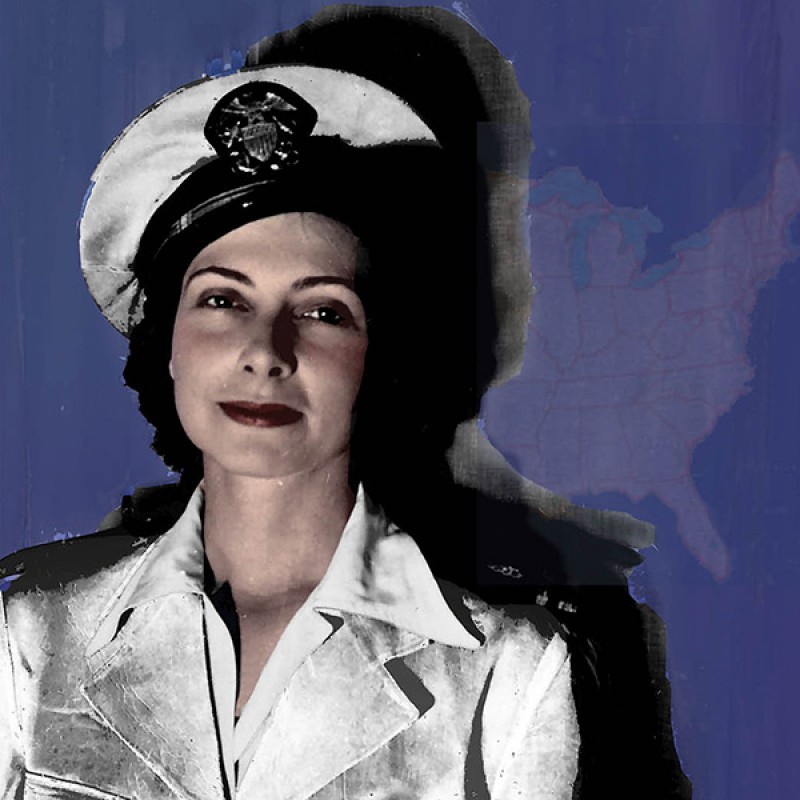"Everybody's Daddy was Gone": Life on the World War II Homefront.
World War II impacted civilian life in America every day. These changes could be surprising, subtle, profound and galvanizing, but no one was left untouched. Young men—sons, fathers, and husbands—became scarce. Familiar pantry staples had to be carefully conserved. Work opportunities forever out of reach to the "fairer sex" suddenly became accessible. Families all over anxiously waited for news, in letters, in telegrams, in newspapers, of their far flung loved ones. This exhibit explores life on Arkansas's World War II homefront with examples from the archives in Special Collections.

Ellen Compton, her sister Edra and their mother did what they could to lift father Neil's spirits. They dressed in the grass skirts and sailor outfits he sent them from the Pacific Theater and sent photographs to remind him of home. Selections from the Lighton Family Papers (MC779) show the impacts on women's work and career choices. Betty joined the Red Cross and got to travel the country and take on leadership roles as a professional also helping in the war effort. Envelopes illustrated by George Fisher while serving oversees before his famed career as a cartoonist added some levity to his correspondence with his father during those enormously disquieting times. Correspondence from the Walter J. Lemke Papers (MS L541) were used for "Uncle Walt's Newsletter," which circulated as mimeographs and was an important source of connection between the University of Arkansas family and its many sons serving oversees.
There are documents that became new parts of everyday life on the homefront such as ration books and savings bonds. Posters and scrapbooks document victory food drives and community programs including those led by Home Demonstration Clubs. The war changed people's plans for the future or at least their immediate priorities. Memoir selections, postcards, and other items from the Delia May Mattison Papers (MC1066) show how she, a recent University of Arkansas graduate and teacher, had to postpone graduate school before she moved in 1942 and began work as a general assembler at Douglas Aircraft in El Segundo, California. Parents also faced stark realities with their sons serving in the war, including prominent Fort Smith civic leader, J.P. Woods, who had three son's serving at once. Pendleton survived German POW camps before returning to Arkansas to continue his father's community service and live to the age of 90. The "Everybody's Daddy was Gone" exhibit uses archival documents, photographs, and artifacts to show human consequences and emotions of World War II. Arkansas's homefront and its people have always born the weight of war and military service. Please join Special Collections in saluting the service and sacrifice of Arkansas's veterans and their families.
(Click thumbnail image to enlarge.)
